Residential Lithium-Ion Battery Energy Storage System Market: Trends, Opportunities, and Future Outlook
Introduction
The residential energy storage sector is rapidly evolving, driven by increasing demand for energy independence, integration of renewable energy, and the growing need for backup power. Among the various technologies, lithium-ion battery-based energy storage systems have become the focus of both homeowners and energy planners due to their high efficiency, long cycle life, and compact design.
This article explores the residential lithium-ion battery energy storage system market, covering current trends, market drivers, technological aspects, and the outlook for the near future.
Market Overview
The global residential lithium-ion energy storage market has seen steady growth over the past five years. Key factors influencing this trend include:
- Rising adoption of solar photovoltaic (PV) systems in homes.
- Increasing electricity costs and variable rates, encouraging homeowners to store energy during off-peak periods.
- Government incentives and subsidies in regions like the United States, Canada, and parts of Europe.
- Growing awareness of energy resilience, especially in areas prone to grid outages.
Industry analysts forecast that the market will continue expanding at a robust compound annual growth rate (CAGR) in the next five years, with the North American market remaining one of the largest segments.
Technology Overview: Lithium-Ion Battery Systems
Lithium-ion batteries have emerged as the preferred technology for residential energy storage due to several advantages:
| Feature | Value |
| Energy Density (Wh/kg) | 90–250+ |
| Cycle Life | 3,000–6,000 cycles |
| Maintenance | Low, managed via Battery Management System (BMS) |
| Charging Speed | Fast |
| Space Efficiency | High |
| Safety | Advanced thermal management and BMS protection |
Key Points:
- Compact and lightweight – ideal for installation in limited residential spaces.
- High efficiency – better charge/discharge efficiency compared to traditional battery types.
- Longevity – significantly longer service life reduces replacement and maintenance costs.
These characteristics make lithium-ion systems well-suited for both solar energy integration and standalone residential backup applications.
Market Drivers
- Energy Independence: Homeowners increasingly seek autonomy from the grid, especially where electricity costs are high or outages are frequent.
- Integration with Renewable Energy: Lithium-ion systems can store excess solar energy, ensuring that solar PV investments are maximized.
- Resilience During Grid Outages: With climate change and aging infrastructure, backup energy has become a priority.
- Government Incentives: Tax credits, rebates, and incentive programs in North America encourage adoption of residential energy storage solutions.
Applications and Use Cases
Residential lithium-ion battery energy storage systems serve multiple purposes:
- Load Shifting: Charging during off-peak periods and discharging when electricity rates are high.
- Backup Power: Ensuring essential home devices remain powered during grid outages.
- Renewable Energy Integration: Storing surplus solar energy for later use.
- Energy Management: Enabling smarter energy use, potentially integrating with home energy management systems.
For a practical understanding of how residential battery backup systems work and enhance energy independence and grid resilience, you can explore our detailed guide on Residential Battery Backup Systems.
Future Trends
Several trends are shaping the residential lithium-ion energy storage market:
- Modular and scalable battery systems for flexible deployment.
- Smart energy management systems using AI and IoT for predictive energy optimization.
- Higher energy density chemistries to maximize capacity within smaller footprints.
- Improved safety standards and certifications ensuring safer adoption for homes.
As adoption continues, economies of scale and technological advances are expected to further reduce costs and enhance system performance.
Conclusion
The residential lithium-ion battery energy storage system market presents strong growth potential, driven by technological advantages, homeowner demand for energy independence, and supportive policies. These systems provide reliable, compact, and long-lasting energy solutions, making them an integral part of modern residential energy strategies.
For homeowners or stakeholders evaluating residential energy storage options, understanding both market trends and practical system applications is key to making informed decisions.


